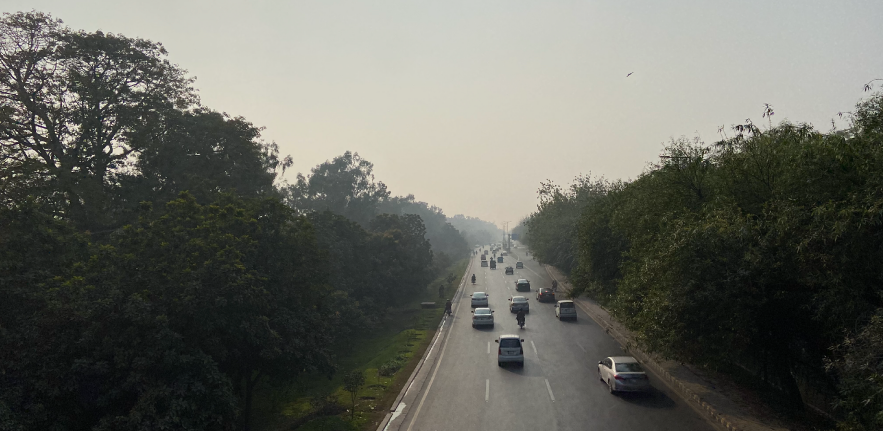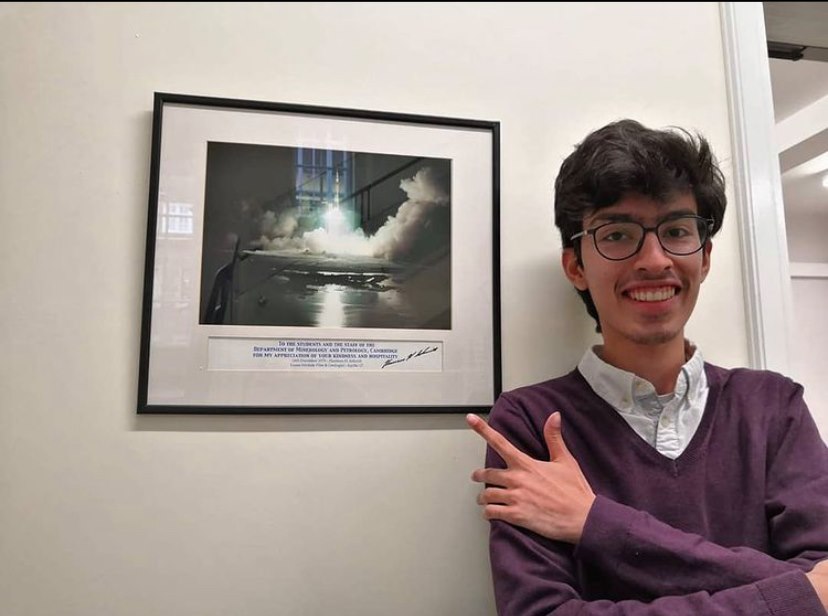
Submitted by Dr C.M. Martin-Jones on Thu, 08/07/2021 - 16:55
Did you know that scientists can use dust trapped on tree leaves to monitor air pollution? Hassan Aftab Sheikh, PhD student in our Department, is developing this monitoring technique further and is also exploring if trees can filter harmful particles from the air. These particles, which measure less than a billionth of a metre, are becoming more common in built up areas and are particularly dangerous because they can pass more easily into the respiratory system.
Airborne particulates from exhaust fumes, screeching brake pads and the industrial sector all leave a residue on the surface of leaves. Hassan hopes scientists will be able to use this residue to monitor pollution at a very high-resolution scale, with the aim of saying not just how much is in the air but where the pollution is actually coming from.
Conventional air pollution monitoring tells you how much particulate matter is in the air, including concentrations of the volatile organic compounds like sulphur and nitrogen oxides which can help particles form, but it doesn’t tell you about the chemical composition of those particles – exactly what it is you are breathing in.
“The idea we are developing is that leaves can also be used, not only to measure concentrations of airborne particles, but also to trap and filter them out. My project aims to build on the existing research on this — using both microscopy and magnetic measurements to characterize the particles,” said Hassan.
Hassan is also interested in climate change policy and, prior to starting his PhD, he worked as a researcher at the Cambridge Centre for Risk. During his time there he analyzed data on extreme weather events, collating evidence on how they might affect business supply chains.
“It was definitely a case of applying my knowledge to real world problems, and doing that internship has really changed my research approach – I really want to steer my own work towards mitigation and policy. I’m really fortunate to have made that connection, and still work for them as an consultant advisor from time to time”.
Read more on our blog.

